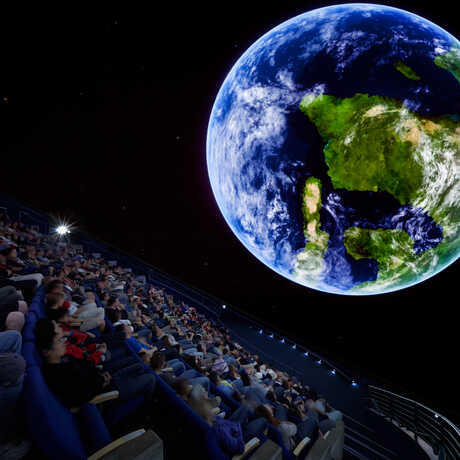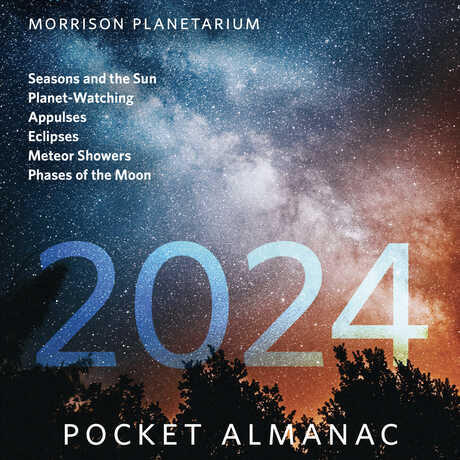Benjamin Dean Astronomy Lectures
The Formation of New Worlds and the Building Blocks of Life

This artistic impression depicts the water snowline surrounding newborn stellar system V883 Orionis as it was detected in 2016.
The Formation of New Worlds and the Building Blocks of Life
Monday, April 1, 2024
7:30 pm, Morrison Planetarium
Featuring Dr. Jenny Bergner, University of California at Berkeley
Astronomers have recently discovered thousands of exoplanets in orbit around other stars. What are these different planets like? Are any hospitable to the development of life? Answering these questions leads us to delve into the rich chemistry that accompanies the formation of new solar systems. Powerful telescopes including JWST are now illuminating, in greater detail than ever before, the distinctive chemistry at play during planet formation. Complementing this, laboratory experiments that mimic the extreme conditions found in space can reveal how molecules behave in these exotic environments. The emerging view of planet formation chemistry is helping to explain the staggering diversity of planet types and compositions that can form—and to predict how newly formed planets can be seeded with the building blocks for life.
Image credit: A. Angelich (NRAO/AUI/NSF)/ALMA (ESO/NAOJ/NRAO)
About Dr. Jenny Bergner

Jenny Bergner is an Assistant Professor in Chemistry at UC Berkeley. She received her BS in chemistry from the University of Virginia in 2013, and her PhD from Harvard University in 2019. She then moved to the University of Chicago as a NASA Sagan postdoctoral fellow before joining Berkeley in 2023. Her research is focused on understanding the volatile chemistry at play in star and planet forming regions, and how it influences the outcomes of planetesimal and planet formation.
From outer space to Earth's inner core, explore the universe from Morrison Planetarium's 75-foot digital dome.

Download Morrison Planetarium's 2024 Pocket Almanac to stay up-to-date on eclipses, meteor showers, satellite spottings, and more.
